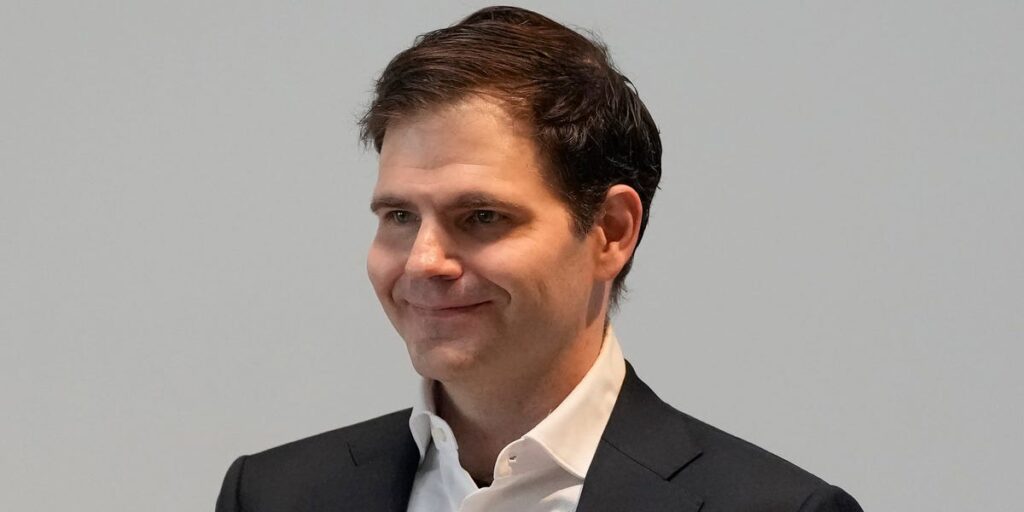AI chip startup Groq’s CEO, Jonathan Ross, said on Monday that having an AI bubble may not be a bad thing.
Ross was speaking to CNBC’s Dan Murphy on the sidelines of the Future Investment Initiative summit in Saudi Arabia when he was asked if AI was experiencing a bubble.
“There’s subtlety and nuance here. So the thing is, as always, you do want a bubble because the bubble is the sign that there’s a lot of economic activity going on, and you just attract all sorts of people, right?” Ross said on Monday.
Ross told Murphy that the real question isn’t whether there is an AI bubble, but whether people are making the right bets with their investments.
“When you focus on the real AI innovations, you can’t put enough money into that, and there will be great returns. There will also be people who make mistaken investments that don’t return,” he said.
“Is the amount of money that’s paid into this AI boom going to be returned with interest? I think the answer to that is, yes. The question is, do you know how to invest in AI?” he continued.
Representatives for Ross at Groq did not respond to a request for comment from Business Insider.
Before founding Groq in 2016, Ross worked as an engineer at Google, where he helped design the search giant’s Tensor Processing Unit, or TPU chips. TPU chips are designed specially for AI models and are an alternative to Nvidia’s graphics processing units, or GPUs.
JPMorgan CEO Jamie Dimon said at the Fortune Most Powerful Women Summit on October 14 that people should not see the entirety of AI as a bubble.
“Though some of these things may be in a bubble, in total, it’ll probably pay off,” Dimon said.
“You’ve got to go one by one to say, ‘Is it pushing a bubble, or is it real?’ Are they really going to develop stuff that will have productive capability that will pay off on the investment?” he added.
Former Meta executive Nick Clegg, meanwhile, said AI has “certainly got some pretty prominent features of what looks like a bubble,” and that investors should brace for potential impact.
Clegg was the UK’s deputy prime minister from 2010 to 2015. He joined Meta in 2018 as its vice president for global affairs and communications and was promoted to president of global affairs in 2022. He left the company in January 2025.
“There’s just an absolute sort of spasm of almost daily, hourly, dealmaking. Of course, you have got to kind of think, ‘Oh wow, this could be headed for a correction,” Clegg said in a CNBC interview that aired on October 15.
Read the full article here


